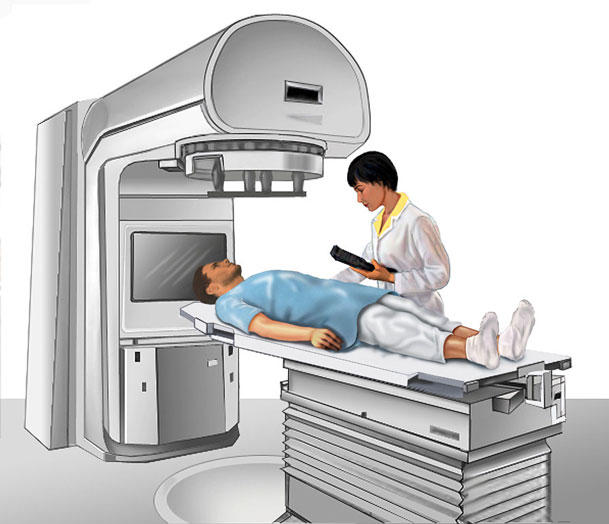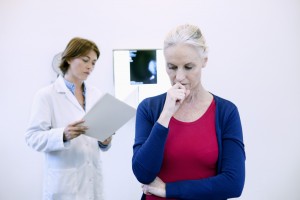
Diagnosed with Cancer? Your two greatest challenges are understanding cancer and understanding possible side effects from chemo and radiation. Knowledge is Power!
Learn about conventional, complementary, and integrative therapies.
Dealing with treatment side effects? Learn about evidence-based therapies to alleviate your symptoms.
Click the orange button to the right to learn more.
Preparing for Radiation Therapy?

You’ve been diagnosed with cancer. Your oncologist prescribed radiation. Naturally, you are preparing for radiation therapy by asking lots of questions. The problem is that most of your questions pop into your head after your appointment with your oncologist.
You’ve heard about Chat GPT aka artificial intelligence. And you’re wondering if you can ask Chat GPT the questions you have about preparing for radiation therapy.
Luke all things in the world of cancer, there are pros and cons to Chat GPT as a source of information for you.
First off, below are commonly asked questions for newly diagnosed cancer patients who are preparing for radiation therapy.
What are the most common questions asked about radiation therapy by cancer patients?
- How does radiation therapy work? Patients want to understand how radiation targets and kills cancer cells while minimizing damage to healthy tissue.
- What are the side effects of radiation therapy? Patients are concerned about potential short-term and long-term side effects such as fatigue, skin changes, nausea, and potential damage to nearby organs.
- How will I feel during treatment? Patients may want to know what to expect during radiation sessions, including whether they will experience pain or discomfort.
- How long will treatment last? Patients often want to understand the duration and frequency of radiation therapy sessions.
- Will I be able to continue my daily activities during treatment? Patients may ask about how radiation therapy will impact their ability to work, exercise, or take care of their daily responsibilities.
- Will radiation therapy cure my cancer? Patients want to know the likelihood of success with radiation therapy and how it fits into their overall treatment plan.
- Are there any lifestyle changes I need to make during treatment? Patients may inquire about dietary restrictions, exercise recommendations, or other lifestyle adjustments.
- What happens after radiation therapy is completed? Patients may want to understand the follow-up care and monitoring needed after radiation treatment ends.
- Will radiation therapy affect my fertility or ability to have children? This is a common concern, particularly among younger patients.
- Are there any alternative or complementary therapies that can help with side effects? Patients may ask about additional therapies or strategies to manage side effects and improve quality of life during treatment.
I am a long-term cancer survivor. My experience and research have given me a definite perspective on the answers to the questions above. Specifically:
2. What are the side effects of radiation therapy? I doubt very much that any source, your oncologist or Chat GPT will give you specifics about short, long-term and late stage side effects. For example, I doubt that oncology understands the long-term damage caused by radiation.
3. How will I feel during treatment? The answer to this question will vary a great deal depending on the patient (age, co-morbidities, physical condition, etc.) and the dose of radiation.
5. Will I be able to continue my daily activities during treatment? The answer to this question is related to the answer to question #3.
6. Will radiation therapy cure my cancer? This depends on the type and stage of the cancer.
8. What happens after radiation therapy is completed? I would encourage hyperbaric oxygen therapy for all cancer patients who undergo radiation therapy but I doubt oncology does this.
9.Will radiation therapy affect my fertility or ability to have children? The answer is yes (it made me infertile) but I doubt Chat GPT or conventional oncology will be open about this side effect.
10. Are there any alternative or complementary therapies that can help with side effects? Again, the answer is yes, but this answer relies on non-conventional therapies. So I doubt that oncology or Chat GPT will understand this issue.
I have used Chat GPT and believe that this form of search can be extremely useful for the cancer patient preparing for radiation therapy. However there can be limits to the information given.
Are you a newly diagnosed cancer patient? Are you considering radiation therapy? What type of cancer have you been diagnosed with? What stage? If you have any of the questions listed above- 0r any other questions for that matter, feel free to email me at David.PeopleBeatingCancer@gmail.com
Hang in there,
David Emerson
- Cancer Survivor
- Cancer Coach
- Director PeopleBeatingCancer
Study finds AI empowers patients before and after seeing physicians for radiation oncology treatment
“Cancer patients about to undergo radiation oncology treatment have lots of questions. Could ChatGPT be the best way to get answers?
A new Northwestern Medicine study tested a specially designed ChatGPT to see if it could successfully provide answers to patients’ common questions about radiation oncology. Patients may be too overwhelmed to address all their concerns during a clinical visit or forget what the physician told them.
The study showed ChatGPT’s responses to 115 common radiation oncology patient questions was on par or exceeded answers from professional societies in terms of accuracy, completeness and conciseness in a majority of cases. The paper, “Quality of Large Language Model Responses to Radiation Oncology Patient Care Questions,” was published in JAMA Network Open…
The AI may also reduce clinician workload and potentially reduce burnout, Yalamanchili said, as the incidence of newly-diagnosed cancer cases climbs and the demands on provider time continue to increase…
More than 60% of cancer patients—500,000 per year—require some form of radiation oncology treatment, according to the National Cancer Institute…
While ChatGPT performed well overall, several responses were concerning, the scientists said. One was that it used language at a college reading level, which is more complex than professional society websites. The others were that it omitted details about a specialized technology for brain tumors and failed to mention the tiny tattoos sometimes used to position the patient for radiation treatments.
The concerns are being addressed by the Northwestern scientists, who stress that this technology needs ongoing refinement and training in specialized medical domains…”


